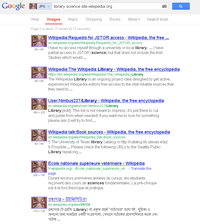
Photo from wikipedia
Memories—especially those containing fine details—are usually lost over time, but this study assessed whether detailed visual memories can survive a 1-week delay if retrieval practice is provided. In three experiments,… Click to show full abstract
Memories—especially those containing fine details—are usually lost over time, but this study assessed whether detailed visual memories can survive a 1-week delay if retrieval practice is provided. In three experiments, participants viewed 300 objects and then completed recognition tests assessing memory for precise object exemplars and their state. The recognition tests occurred immediately after encoding and 1 week later, and required participants to distinguish between a previously seen target object and an incorrect foil. While there was forgetting when participants were tested on different sets of stimuli across the delay, retrieval practice led to an advantage in recognition performance. This effect was not simply due to mere exposure, as retrieval practice boosted recognition beyond a restudy condition, which had a second encoding opportunity but no retrieval practice. Yet more detailed analyses revealed that the effect of retrieval practice was highly dependent upon the type of information being tested (exemplar or state) and the specific foil that was presented. In addition, state information was harder to retain over the delay than exemplar information, suggesting that memory for different properties is forgotten at different rates.
Journal Title: Quarterly Journal of Experimental Psychology
Year Published: 2019
Link to full text (if available)
Share on Social Media: Sign Up to like & get
recommendations!